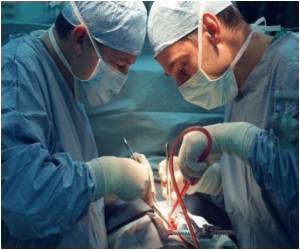
"My reply, invariably, was that all patients were patients and needed care," said Ndiaye, who received his training in Europe and returned to Senegal in 1989.
It took time, collaboration with several non-governmental organisations and especially a fortuitous encounter, in 1995, with an American surgeon before the first open-heart operation took place in Senegal, Ndiaye said.
Four patients underwent surgery at the Aristide Le Dantec hospital in Dakar, with a large US team taking part including a surgeon and three anaesthetists, he said.
"At the time, lots of people couldn't believe it. It was a challenge," Ndiaye said.
"Fortunately, it went well" for everyone, he added, recalling "a lot of pressure" from both the Senegalese and the American sides.
Advertisement
"Here we have a permanent team. Every week there are patients who have (open-heart) operations," Ndiaye said, noting however that there are more adults than children.
Advertisement
While the centre has operated on Malian adults before, it was treating non-Senegalese children for the first time.
In the operating room, Senegalese and French surgeons lean over an open thorax in which a glistening heart is beating.
Thirteen-year-old Aminata Diakite is one of six Malian children brought to Dakar under a humanitarian programme aimed at children from poor families who need surgery to "repair" their complicated heart conditions.
Operating room attendant Amagor Diouf explains the working of the heart-lung machine, a sophisticated pump that "will take over when we stop the heart to work inside the valves."
Aminata's heart condition is "very advanced," said French thoracic and cardio-vascular surgeon Gerard Babatasi, who is based in Caen, northern France. "If we did nothing, she would die."
The programme was developed and is underwritten by the French group La Chaine de l'Espoir (The Chain of Hope), which has worked with Senegalese heart specialists for two decades and has also worked in Cambdia, Afghanistan and Mozambique.
Babatasi is also vice president of La Chaine de l'Espoir which, thanks to donations, "takes on and treats children's heart conditions in all countries where there is no cardiac surgical centre" such as Senegal's.
It brought four girls and two boys, aged between six and 15, from Mali, paying for the surgery and post-operative care.
The six children from "very poor families" suffer congenital heart disease with no one to pay for a remedy, Babatasi said.
One did not survive. "It was a very complex operation and it went badly," he said.
The five other operations at Dakar's university hospital were successful and the patients are recovering remarkably quickly, doctors say.
Nine-year-old Maimouna Diarra, her torso swathed in bandages, tubes and wires in the recovery ward, "is already alert and energetic 24 hours after her operation," said Oumar Diarra, a Senegalese member of the surgery team.
After they leave hospital, the five little Malians will stay with Senegalese families who volunteered to take them in for a few weeks as they convalesce.
The operations are very expensive by west African standards at around two million CFA francs (some 3,000 euros or 4,000 dollars), Ndiaye said.
La Chaine de L'Espoir has demonstrated the advantages of an "inter-regional" approach, notably in reducing costs compared with treatment in Europe, and in the practical training of local specialists, Ndiaye said.
"The ideal is to develop technical arenas locally so that we can operate on patients in the region," he said, adding: "The more we do, the better we do."
Source-AFP











